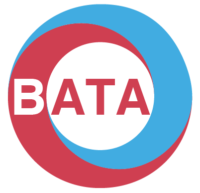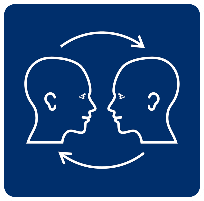- What support services are available to help me return to work?
A disability employment advisor at your local Jobcentre will be able to advise you on opportunities that would be especially good for you. The government has produced a guide to help disabled people who are looking for work.
The Work and Health Programme can help you get and keep a job if you are disabled, including help with Access to Work support (see below). The Specialist Employability Support scheme offers intensive support and training for disabled adults looking to enter the workplace. There is also information if you are looking to move from benefits to work.
Different opportunities are available in Northern Ireland. The Condition Management Programme is designed to assist disabled people in obtaining the healthcare advice they need to return to work. The Job Introduction Scheme pairs a disabled job-seeker with an employer for a paid three-month trial. Workable (NI) provides long-term support if you have a disability and face a lot of barriers to employment. You may also qualify for residential training. The full advice for those living in Northern Ireland is available here.
-
- What is Access to Work?
Access to Work is a government grant scheme for disabled people living in England, Wales and Scotland. You can apply for support to help with costs associated with being in paid employment. For example, you may need special equipment or a support worker at your job, or you may have special transportation needs. You do not have to repay the grant, and it won’t affect any other benefits you receive.You can apply for an Access to Work grant online or by phone – more information is available here.
- I would like to get some work but I am concerned I might lose all my benefits. Where can I find out more?
The Government provides an online tool that allows you to check you are receiving all the benefits to which you are entitled. You can also see how your benefits will be affected if you find work.
In Northern Ireland, Disability Action can advise on benefits and ensure that you are acting in your own best financial interest.
- I am interested in volunteering but don’t know how to go about it. Who could I ask?
There are lots of great resources for people looking to volunteer. National organisations have information on their websites on how to find volunteering roles in your area. Local bodies such as councils can also point you towards opportunities to help out. Volunteering can help build skills that could help you find a job.
The following organisations are all national, and have extensive databases of thousands of charities and non-profit organisations that need volunteers.
- Volunteering Matters, UK-wide and also has links for specific opportunities to volunteer in Wales and Scotland
- National Council for Voluntary Organisations – the NCVO also runs a network of Volunteer Centres around the UK where you can get involved
- Do-it
- Volunteering Wales
- Volunteer Scotland
- nidirect.gov.uk/volunteering has information on volunteering in Northern Ireland
If you volunteer and receive benefits, you should check that you won’t lose those benefits while volunteering. You can find out more here.
See also
- FAQs – AAC and Autism Spectrum Disorder (ASD)
- FAQs – AAC and cerebral palsy (CP)
- FAQs – AAC and developmental difficulties
- FAQs – AAC and employment
- FAQs – AAC and general paediatric care
- FAQs – AAC and hospitalisation
- FAQs – AAC and locked-in syndrome
- FAQs – AAC and Parkinson’s Disease (PD)
- FAQs – AAC and stroke and aphasia
- FAQs – AAC and training
- FAQs – AAC assessment and clinical decision-making
- FAQs – the law, policy and services






